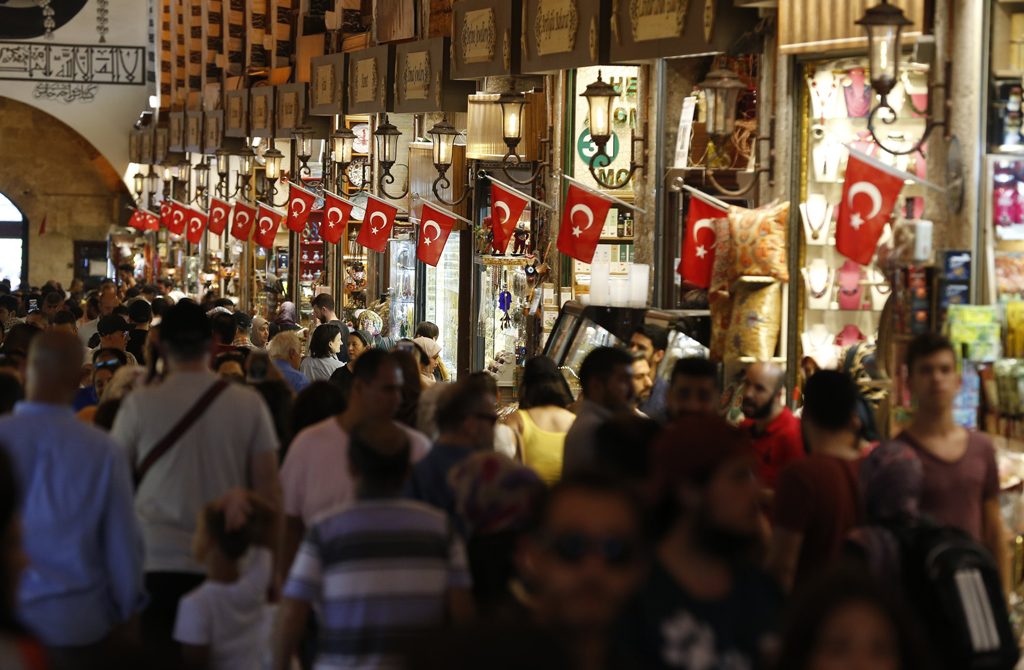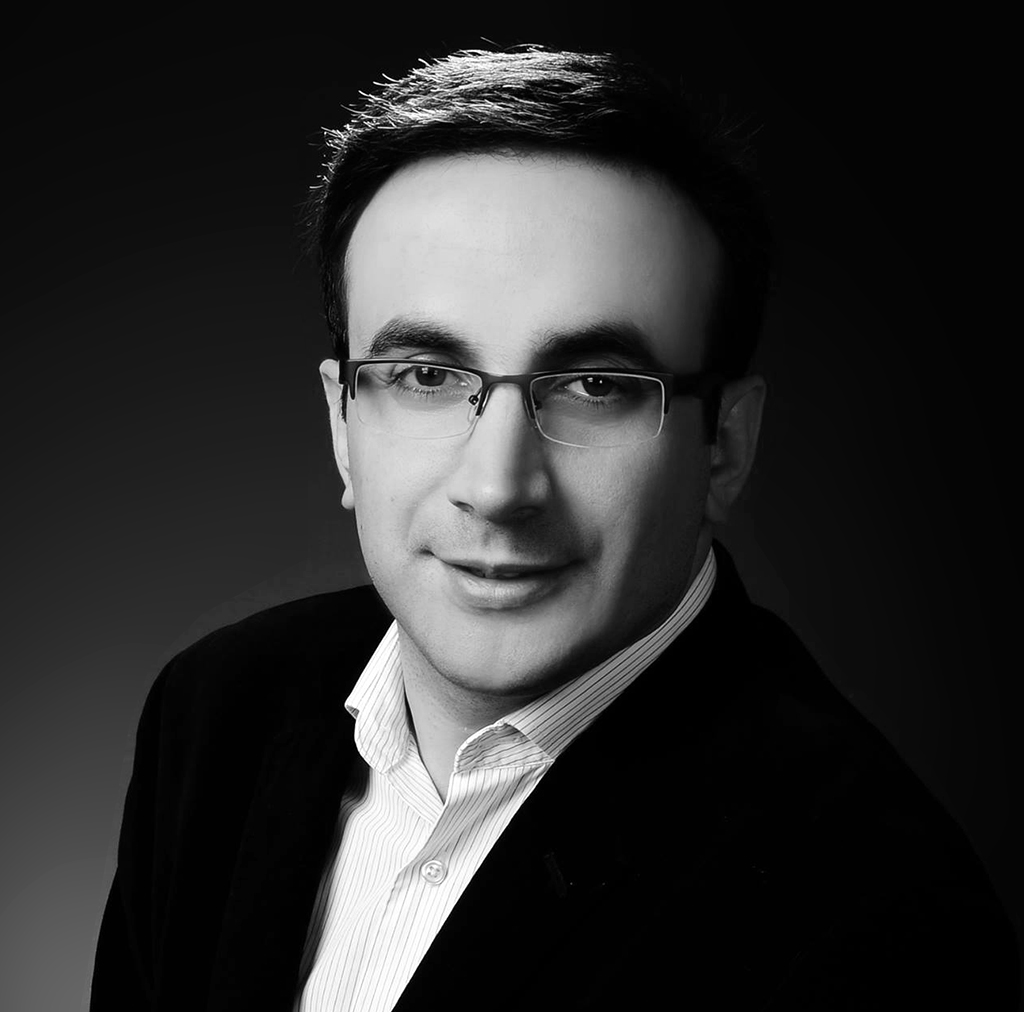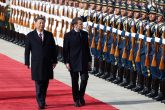Following the global financial crisis of 2008, liberal ideology was deeply wounded. The Keynesian ideology, arguing that governments should intervene where necessary (for the public interest) and that institutions should work more effectively, began to gain more popularity. The pandemic of 2020 (and the weaker position of capital) also strengthened this transformation. In emerging economies such as Türkiye and developed countries such as Japan, on the other hand, development policies, public stimulatory interventions and more independent policies came to prominence.
However, although the transformation of economic policies and new practices in Türkiye resemble similar examples in the West, things work a little bit differently in the country. For instance, the social democratic movements in our country usually adopt the policies of the conservatives in the United States. In this Keynesian mania, the trust in the markets (of conservative democratic right-wing parties such as the ruling Justice and Development Party (AK Party), which itself is mostly in line with the Democratic party in the U.S.), in line with the views of the Republicans in the U.S., can be demonstrated as another notable difference.
Policy implications in Türkiye
Türkiye is treading a fine line between liberal and interventionist policies. Although the market economy was adopted by the modern Turkish republic with the Izmir Economic Congress in 1923, the Keynesian interventionist understanding began to dominate national economic policies step by step, in particular after the Great Depression. Post World War II, the principle of the etatism of Mustafa Kemal Atatürk’s revolutions would continue to dominate economic policies, and this statist understanding would dominate economic management for many years to come.
National industrialization thrust, protectionist and statist perspective in the founding years of the modern republic meant a serious development, shaking and rebirth from the ashes with new factories, railway thrust and nationalization in transportation infrastructure, mining, logistics and so on. In this sense, the basis of the Keynesian interventionist school that dominates the national economies, and thus the real transformation of economic policies, leans on the restructuring of the post-Great Depression era. In the Turkish case, this transformation was given a new dimension with the outright majority power of the AK Party after 2002.
In Türkiye, a little further back, from the 1960s onward, medium-term planning periods were initiated with the Soviet influence at that time. With the five-year development plans, producers, industrialists and politicians were given responsibilities and homework; a new perspective and vision were presented. The partial liberalization attempts of the Democratic Party and the Menderes period, on the other hand, would be replaced by interventionist policies with the military tutelage set in the 1960 coup. The Justice Party (AP) and Süleyman Demirel governments of the 1960s, based on a sustainable and rapid development thrust with the support of their development plans, were instilling the vision of planned growth into the country.
Since the 1980s, and along with the Washington consensus and the new globalization wave, a robust desire for liberalization, opening up and transition to a market economy emerged in Türkiye. With the outward opening, there would also be issues related to the desired level of foreign capital inflows, especially in terms of foreign direct investments. External deficits and subsequent weakness in capital flows increased external debt and the financing deficit. Post the 1980s, step by step, Türkiye would become a country of consumption culture, constant external deficits and ever-increasing debt.
The AK Party government’s era of post-2002, on the other hand, kicked off a new development and transformation story. A brand-new story was initiated with major public-supported infrastructure investments and the transformation in the defense, health and education sectors. The International Monetary Fund (IMF) supported economic recovery program of the post-2001 crisis was also transformed into a more national and original development program with Keynesian tones, together with the AK Party governments.
Economic policies
In this direction, and in addition to the active and effective use of policy instruments, the public interventionist structures, policy tools and the economic mentality of the political movements that use these instruments are just as important. For example, although many constituents are angry with the utter opposition of the current main opposition Republican People’s Party (CHP), which ruthlessly criticizes everything that comes its way, especially from the active interventionist approach of the ruling AK Party in Türkiye; this stance is indeed pretty much compatible with more conservative or the classical conservative view.
It could, indeed, be debated whether this opposition or criticism is made consciously, but at least they seem to be compatible. However, the conflict between the center left’s stance with the other proposals of the classical school creates some confusion. For example, one significant difference between the political system in Türkiye and that in the U.S. (to which Türkiye is often compared) is that the social democratic parties in Türkiye adopt policies of the conservative parties in the U.S. The views of the conservative-democratic AK Party (mostly in line with the Democratic Party in the U.S.) regarding the market economy, however, are mostly in line with those of the Republican Party in the U.S.
The approaches of most of the political movements in Türkiye toward policy implementations, social policy proposals, their active use of fiscal and monetary policies, plans for climate change and entrepreneurship, and programs for longer-term structural transformations, however, still await answers. Thus, the economic policy stance of the center or other leftist parties of emerging economies such as Türkiye is naturally more intriguing. However, more fundamental issues, such as the vicious domestic political debates in Türkiye, rarely let the discussions about the economic policies show up.
Furthermore, in the Keynesian school, central banks tend to be more independent and have relatively more autonomous structures too. Keynesians argue that central banks should use active monetary policy to manage business cycles effectively and that the banks should also be subsidized as in the current situation or during the 2008 crisis. They have made noteworthy contributions to support economies both in the recovery process after the global financial crisis in 2008 and in the problematic global economic, political and financial conjuncture brought about by the pandemic, crises and wars since 2020.
Moreover, it is surely difficult to be sure whether our center-left does really have such a policy but one thing is certain the classicals even question the very existence of central banks. Therefore, it may be useful for those working at the central bank to follow closely the policies of potential governments more carefully. For example, in the U.S., Republican and libertarian Ron Paul’s “End the Fed” book got on the bestsellers list with the attention it received after the 2008 crisis.
In that vein, the famous call for the abolition of the Federal Bank (Fed) by Milton Friedman, the famous economist and pioneer of the macro-monetarist approach, is still ringing in the ears. However, Friedman went further and presented the thesis that there is indeed no need for central banks, at all. The practical justification for this argument was that the only apparent function of the central banks was to generate inflation and steal money from the citizens’ pockets. This monetarist view, which inspired former British Premier Margaret Thatcher, sees the excess money supply as the primary cause of inflation and uncertainties in the economy.
One of the critical questions at this point is what the alternatives of central banks would be. For example, according to the classical monetary economist Milton Friedman, central banks could even give way to a computer program that would automatically respond to changes in the money supply in the long run. Apart from this, various other proposals ranging from plans that assign roles to governments in money supply to the nominal gross domestic product (GDP) estimates are frequently discussed. But following clear rules, such as a money supply growth rate of 2%, among these proposals, also takes away central banks’ goal independence and/or instrument independence.
Unique harmony of economics and politics
Economics and politics are defined as the two horsemen of modernization. They feed each other and act together. The liberal economy, which has dominated the economic and political atmosphere for at least the past 200 years, is at the center of eco-political assessments. The right to private property forms the basis of liberalism and liberal democracy. The private space is under full protection. However, this liberal ideology and its political supporters have been deeply injured in recent years.
For example, together with the recent globalization trend, the deterioration in income distribution and increases in unemployment cause serious disturbances at the global level. Politicians, on the other hand, incapable of proving themselves, try to cover their incompetence in policy implementation by fueling differences (ethnic, sectarian and religious, etc.). Hence the hovering economic policies as well. The funny case of politicians trying to make the most of natural disasters or even the negative global conjuncture is a clear expression of this oddness.
It would hence not be wrong to explain the increasing anti-immigrant, extreme right-wing governments, violence, political differences and protectionist tendencies with this bizarre trend. Türkiye, on the other hand, seems to adopt a more independent economic and national development policy with its unique policy approach. However, it seems that we will need to wait a long time to better understand the opposition’s stance on this point. The outcomes of Türkiye’s original economic policies, blending liberal policies with interventionist and social policies, will continue to showcase themselves over time.



